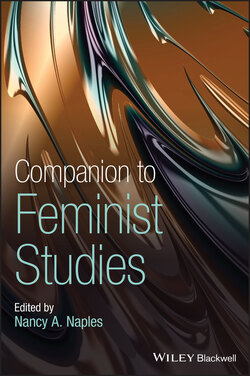Читать книгу Companion to Feminist Studies - Группа авторов - Страница 39
The Social Wage, Mode of Production Debate, and Patriarchy
ОглавлениеMovements to expand the social wage, through paid parental leave and government‐provided childcare among other collective support for reproductive work, are long‐term components of socialist feminism (Fraser 2013). These movements within socialist feminism spurred innovations within Marxist feminist social reproduction theory. Marxist feminist analyses of free trade zones began with the admission that class politics are central to questions of social reproduction and the gendered oppression of women (Fernández‐Kelly 2000). Marxist feminist scholars did not simply expand the definition of “production” to include unpaid and racialized reproductive labor as its hidden center, but asked what it revealed about capitalism as a whole. Marxist feminist scholars who analyzed the experiences of women in the postcolonial Third World demanded increased attention to the landlessness of rural women, a large proportion of rural women, and the erasure of their work on subsistence family farms (Agarwal 1994). This erasure had two components: first, women's subsistence agricultural work folded into the logic of reproductive labor at large, as work unrenumerated by land title, wages, ownership of goods produced, or social value. Second, economic measurements of the rural economy used the family as the primary economic unit and erased the lives, labor and value of rural women (Beneria et al. 2016; Sen and Grown 1987).
Marxist feminism as a theoretical and activist framework became increasingly criticized by many feminists for relying solely on Marx's analysis of capitalism, and therefore missing the ways in which women's exploitation was a consequence of multiple forms of oppression. Instead of centering capitalism as the sole form of exploitation shaping women's lives, socialist feminists argued that patriarchy was as important for women's historical and contemporary oppression as Marxist analyses of capitalism. In the 1980s, Marxist feminists and socialist feminists in Euro‐America fiercely debated whether patriarchy was intrinsic to capitalism in what was called the mode of production debate (Kuhn and Wolpe 1982; Vogel 1983). The debate centered on whether patriarchy was an “extra‐economic” force used for labor control under capitalism, whether it was the systemic tool at hand to maximize capitalism's efficiency, or whether it was systemic to capitalism (Barrett 1980; Brenner 2000; Gibson‐Graham 1986). The corollary of this debate was a political one for working‐class women. Socialist feminists challenged the Marxist feminist precept that the overthrow of capitalism was a necessary first step for women's liberation and freedom (Delphy 1984). Socialist feminism in this debate framed women workers' class struggle as a betrayal, or at best, an unnecessary distraction. Instead they argued that women's oppression was primarily an ideological force that produced “woman” as a category of subjection (Laclau and Mouffe 1985). Socialist feminists today have taken up the unitary or integrated theory (rather than the “dual systems theory”) for ongoing analyses that integrates patriarchy and capitalism. In fact, some feminist scholars argue that socialist feminism was an early feminist attempt to theorize the intersection of sexism, class oppression, and racism (Joseph 1981; Naples 2003).
